Military history is a vast and complex subject that encompasses the study of warfare military strategies and the impact of armed conflicts on societies and cultures. It delves into the evolution of warfare from ancient times to modern times including the causes events and impact of major wars such as World War I World War II and the Cold War.
Military history also explores the decisive battles that shaped the course of history and the military innovations and technological advancements that have influenced the effectiveness of armies throughout history.
The study of military history is essential for understanding the impact of armed conflicts on societies and cultures. It provides a lens through which to examine the political social and economic factors that led to wars and the consequences that followed.
The study of military history also offers insights into the strategies and tactics used by armies throughout history and how they have evolved over time. Through the examination of military history we can gain a deeper understanding of the impact of war on societies and the lasting legacies of conflict.
Key Takeaways
- Military history encompasses the evolution of warfare from ancient times to modern times decisive battles and military innovations and the impact of armed conflicts on societies and cultures.
- Examples of military history include ancient battles and empires World War I and II the Holocaust and the Cold War.
- Advancements in military technology include the development of the wheel and chariot in ancient times nuclear weapons firearms tanks and air power.
- Military strategies and tactics have evolved over time with prominent figures in warfare such as Napoleon Bonaparte and Sun Tzu and the use of various formations and siege tactics employed by different societies. The impact of military history on contemporary military operations and policy decisions is significant.
Ancient Battles and Empires

The ancient battles and empires of the past provide valuable insight into the military tactics and strategies employed during this period.
The ancient world was characterized by a number of powerful empires including the Greeks Persians Romans and Egyptians. These empires engaged in numerous battles that helped shape the course of history and contributed to the development of military tactics and strategies.
One of the most significant battles of the ancient world was the Battle of Marathon in 490 BC. This battle saw the Athenians defeat the Persians despite being heavily outnumbered.
The Athenians employed a phalanx formation which involved soldiers standing in a tight formation with their shields overlapping. This formation allowed the Athenians to withstand the Persian cavalry charges and eventually defeat them.
The Battle of Marathon is considered a turning point in ancient military history as it showed that even a smaller force could defeat a larger one through the use of effective tactics and strategy.
World War I: Causes Events and Impact
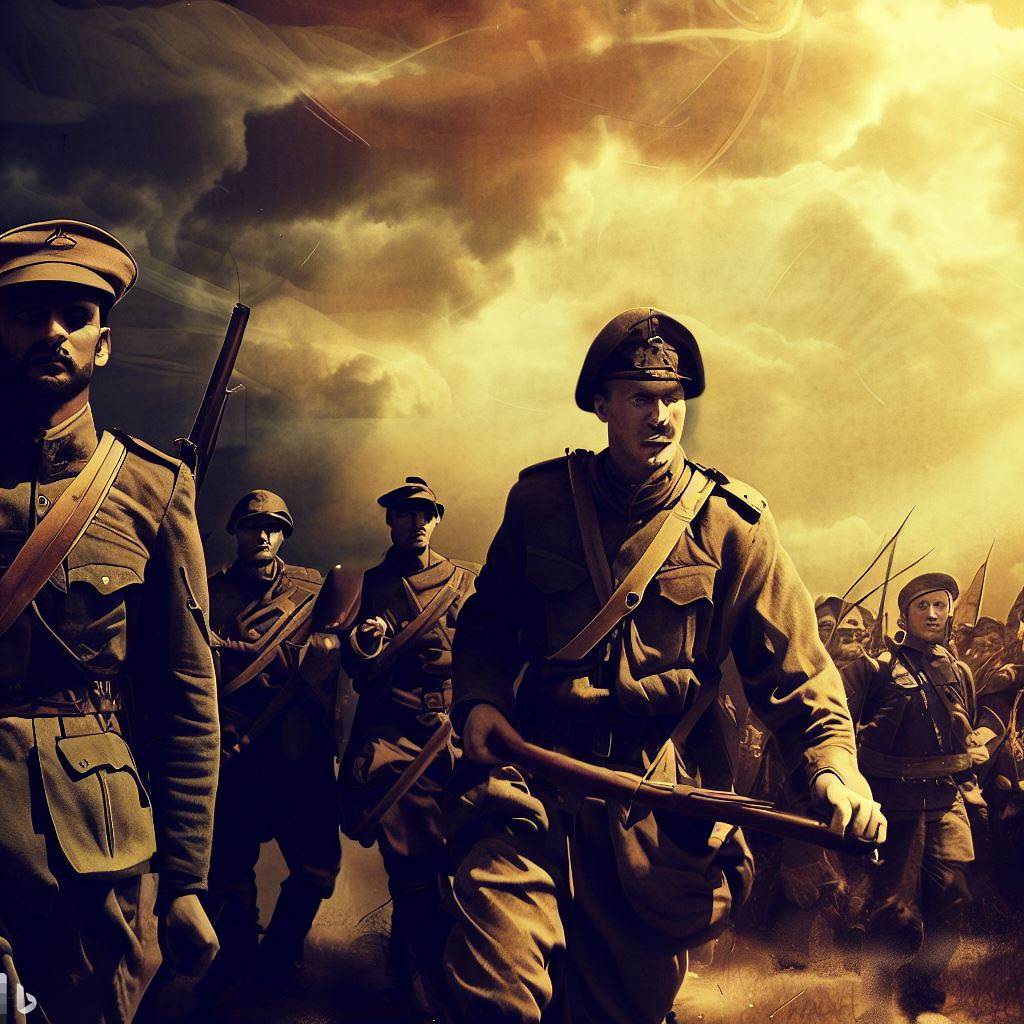
Significant factors fueled the outbreak of World War I including militarism alliances imperialism and nationalism leading to a global conflict that lasted from 1914 to 1918 and had far-reaching political economic and social consequences.
The competition for power and influence among European nations coupled with a complex web of alliances created a tense and volatile international environment.
The assassination of Archduke Franz Ferdinand of Austria-Hungary by a Serbian nationalist in June 1914 was the immediate trigger for the war but the underlying causes had been brewing for years.
The war was fought on multiple fronts with millions of soldiers and civilians losing their lives.
The use of new technologies such as machine guns poison gas and tanks made the conflict even more deadly.
The war also had significant political consequences leading to the collapse of several empires and the redrawing of national borders.
The Treaty of Versailles which ended the war imposed harsh penalties on Germany and set the stage for the rise of extremist political movements in the years that followed.
The impact of World War I on the global political economic and social landscape was profound with its effects felt for decades to come.
World War II: Major Campaigns and Key Figures
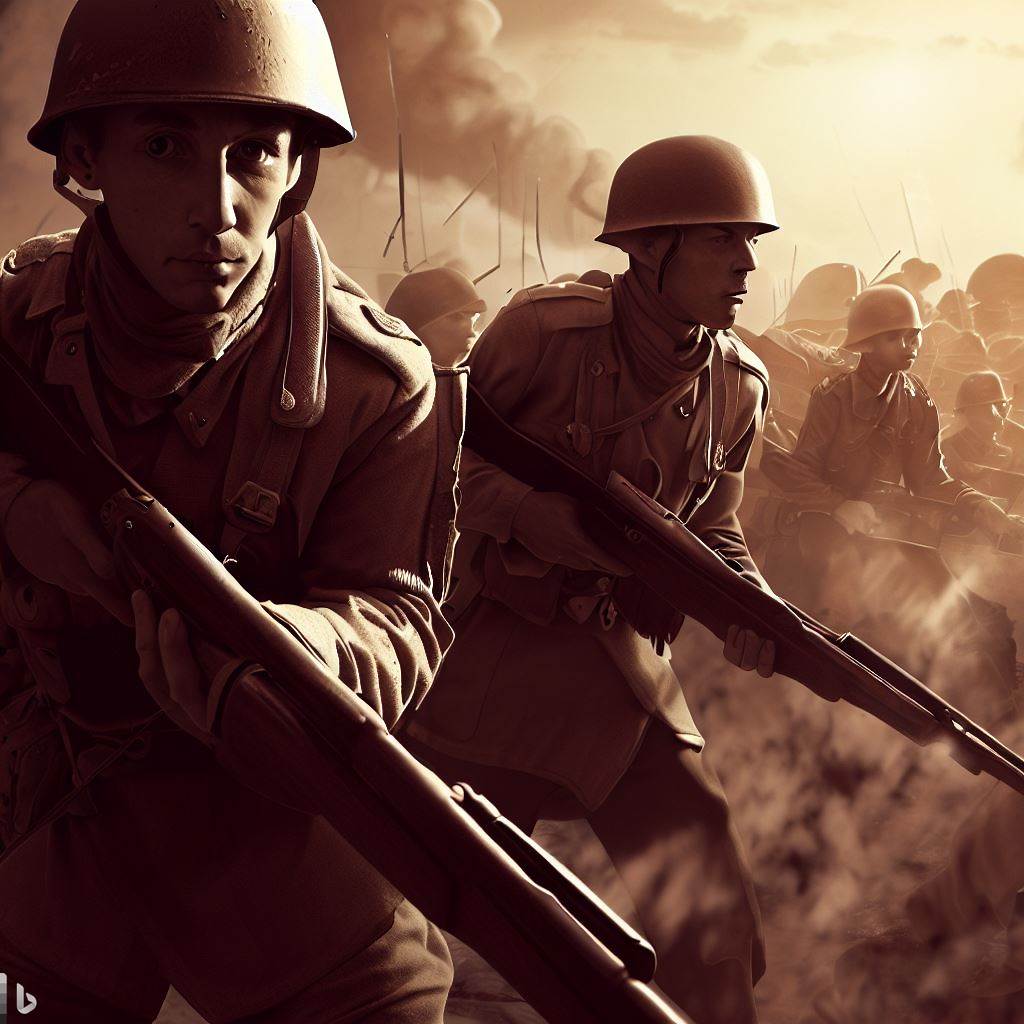
Notable figures and pivotal battles characterized the major campaigns of World War II evoking a range of emotions from triumph to tragedy. The war lasted from 1939 to 1945 and involved the majority of the world’s nations. It was the deadliest conflict in human history resulting in an estimated 70-85 million fatalities.
Here are four key aspects of the war that continue to capture the attention of historians and the public alike:
- The Battle of Stalingrad: A turning point in the war the Battle of Stalingrad was fought between August 1942 and February 1943 and resulted in a Soviet victory that marked the beginning of the end for Nazi Germany.
- The D-Day Invasion: On June 6 1944 Allied forces launched a massive invasion of Normandy France opening a second front in the war and ultimately leading to the liberation of Western Europe from Nazi control.
- The Manhattan Project: Led by American physicist J. Robert Oppenheimer the Manhattan Project was a research and development effort that produced the first nuclear weapons which were used by the United States to end the war in the Pacific.
- The Holocaust: The systematic persecution and murder of six million Jews by Nazi Germany remains one of the most horrific crimes in human history and is a stark reminder of the dangers of racism prejudice and totalitarianism.
The Cold War: Global Tensions and Proxy Conflicts
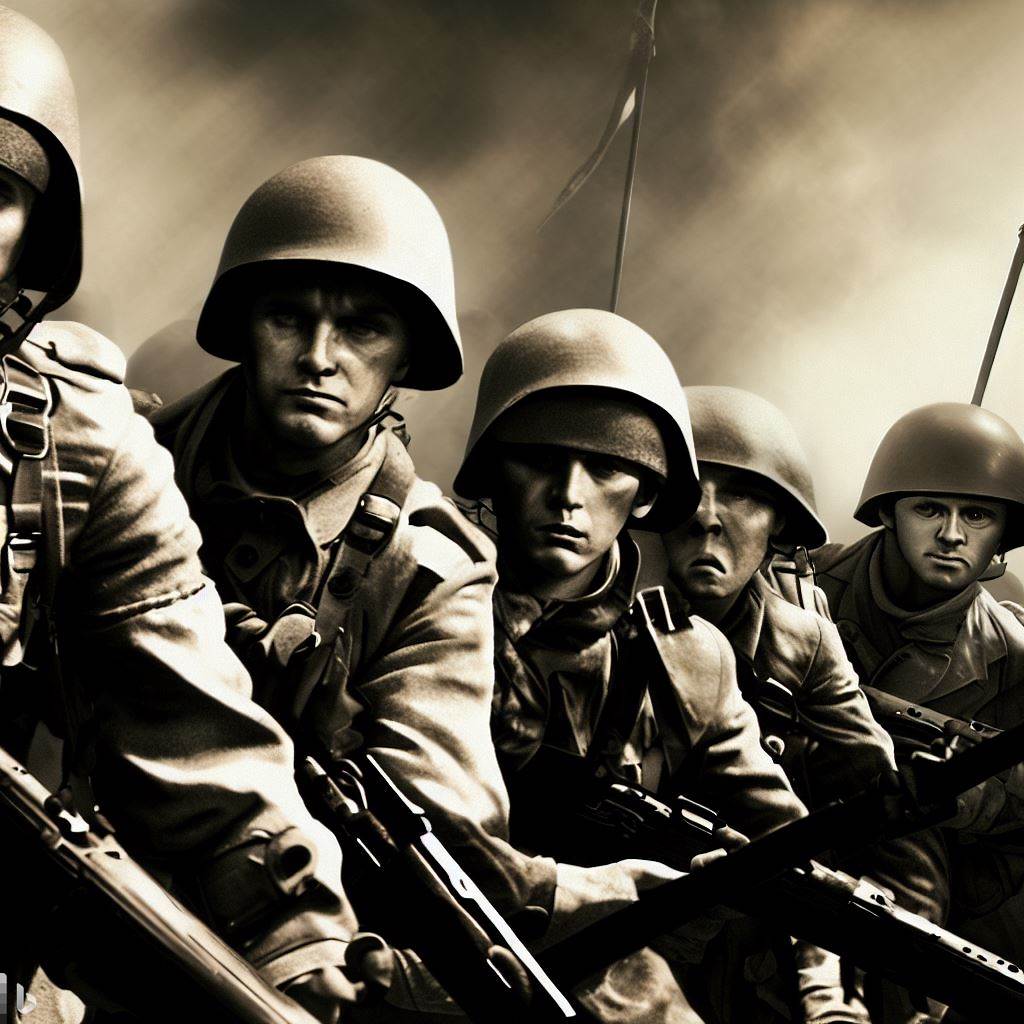
Tensions between the United States and Soviet Union after World War II resulted in a global power struggle that played out through proxy conflicts and geopolitical maneuvering. The Cold War as it was called lasted from the late 1940s until the collapse of the Soviet Union in 1991.
It was a period of intense mistrust and hostility between the two superpowers with both sides engaging in a dangerous arms race and competing for influence in various parts of the world.
Throughout the Cold War the United States and Soviet Union engaged in a number of proxy conflicts in which they supported opposing sides in conflicts around the world. These conflicts included the Korean War the Vietnam War and various conflicts in Africa and Latin America.
The two superpowers also engaged in a dangerous game of nuclear brinksmanship with both sides maintaining large arsenals of nuclear weapons and threatening to use them in the event of a conflict.
Despite the danger and mistrust of the era however the Cold War ultimately ended peacefully with the Soviet Union collapsing due to a combination of internal factors and pressure from the West.
Military Innovations and Technological Advancements throughout History
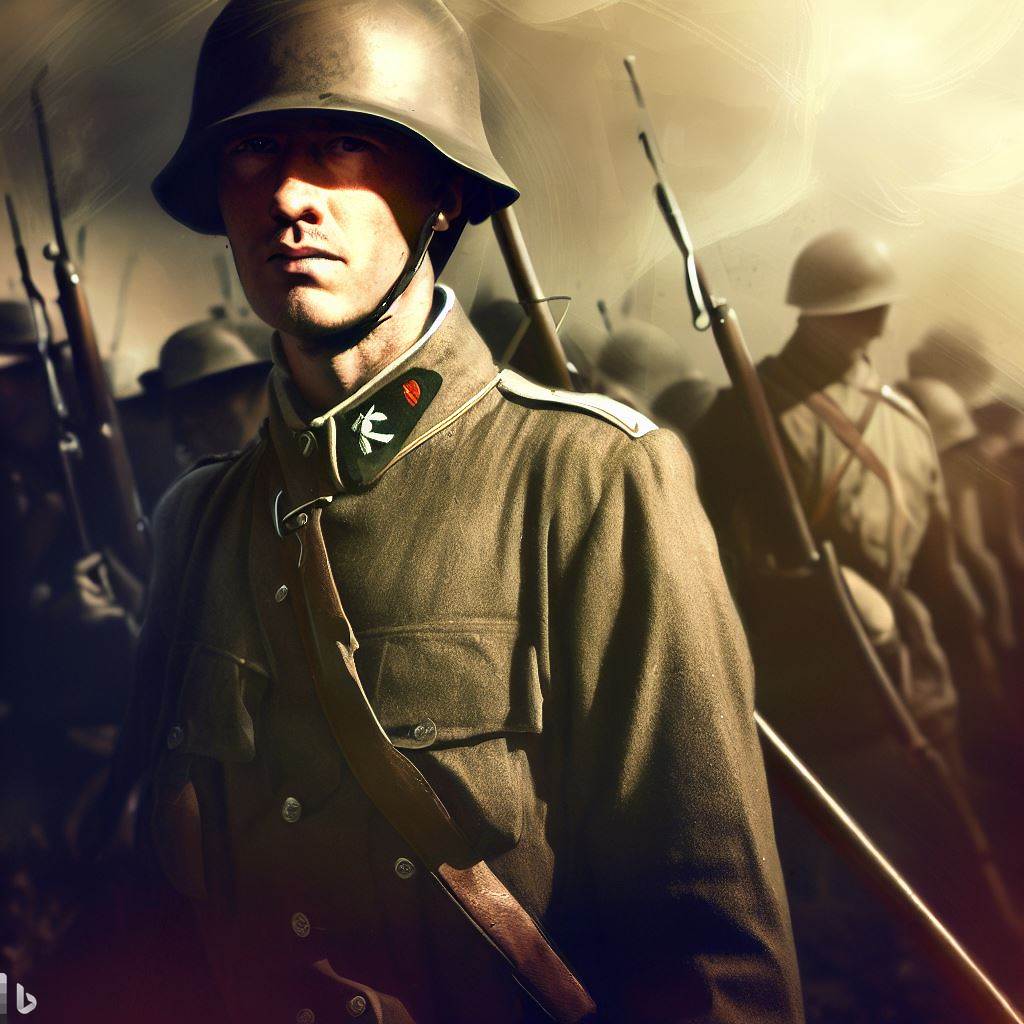
Throughout the ages warfare has been shaped by a range of innovations and advancements that have revolutionized the way battles are fought and won.
From the development of the wheel and chariot in ancient times to the use of gunpowder and firearms in the medieval period and the introduction of tanks and aircraft in the modern era technological advancements have played a crucial role in the evolution of warfare.
One of the most significant military innovations was the introduction of nuclear weapons during the Second World War. The atomic bombs dropped on Hiroshima and Nagasaki in 1945 brought the destructive power of nuclear weapons to the forefront of global consciousness.
The threat of mutually assured destruction during the Cold War led to a race for nuclear armament between the superpowers of the United States and the Soviet Union and the proliferation of nuclear weapons to other countries.
Today the development of new technology such as drones cyber warfare and artificial intelligence continues to shape the future of military strategy and tactics.
Famous Military Leaders and Their Strategies
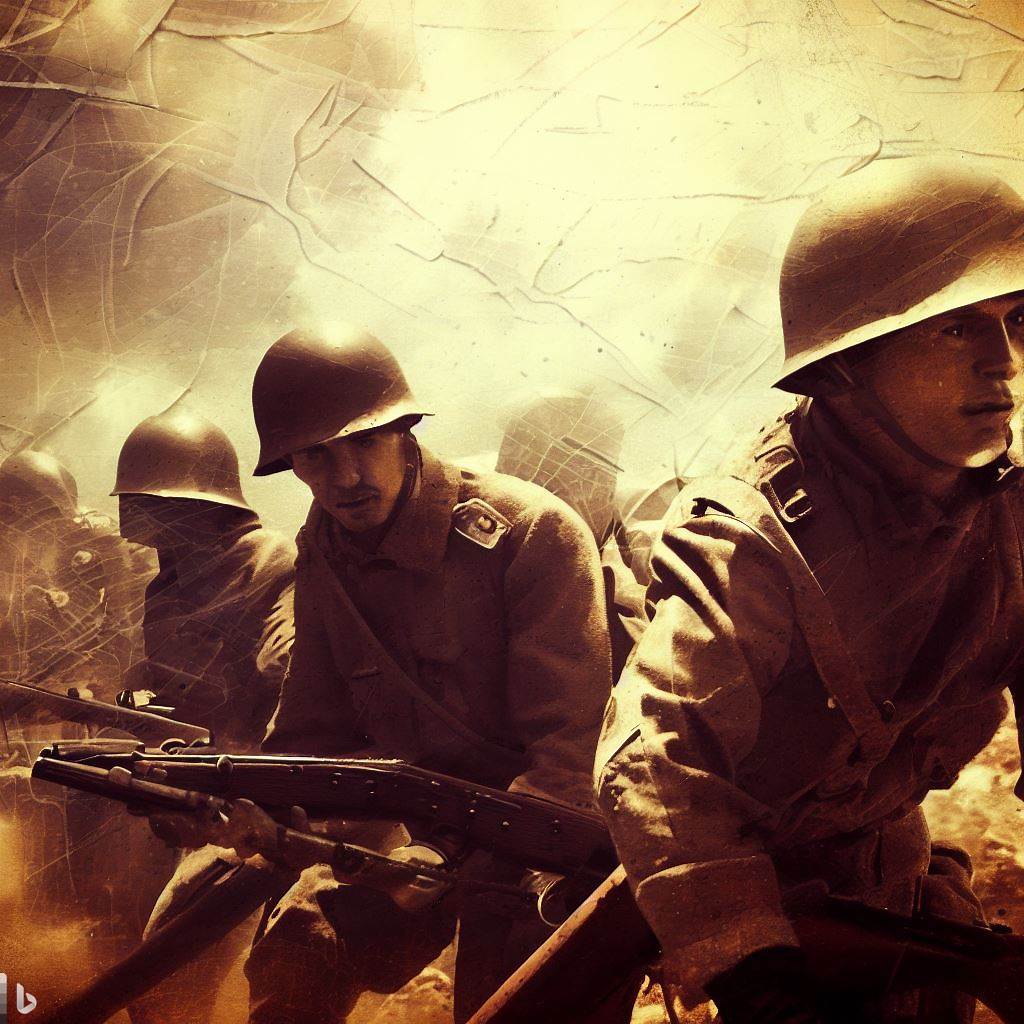
Prominent figures in warfare such as Napoleon Bonaparte and Sun Tzu are well-known for their strategic prowess and tactics that shaped the outcomes of battles. These military leaders utilized their knowledge of terrain and their enemies’ weaknesses to craft innovative approaches to warfare. Their tactics have been studied and emulated by military scholars and practitioners alike serving as a foundation for modern military strategy.
Napoleon Bonaparte for example is known for his innovative use of artillery and his ability to maneuver large armies quickly and efficiently.
Sun Tzu on the other hand emphasized the importance of understanding one’s opponent and using deception to gain an advantage.
Other famous military leaders include Alexander the Great who is renowned for his ability to motivate and inspire his troops and George Washington who utilized guerrilla tactics to defeat the British in the American Revolutionary War.
The strategies and techniques developed by these leaders have had a lasting impact on military history influencing the way wars are fought and won.
Evolution of Warfare: From Classical to Modern Times
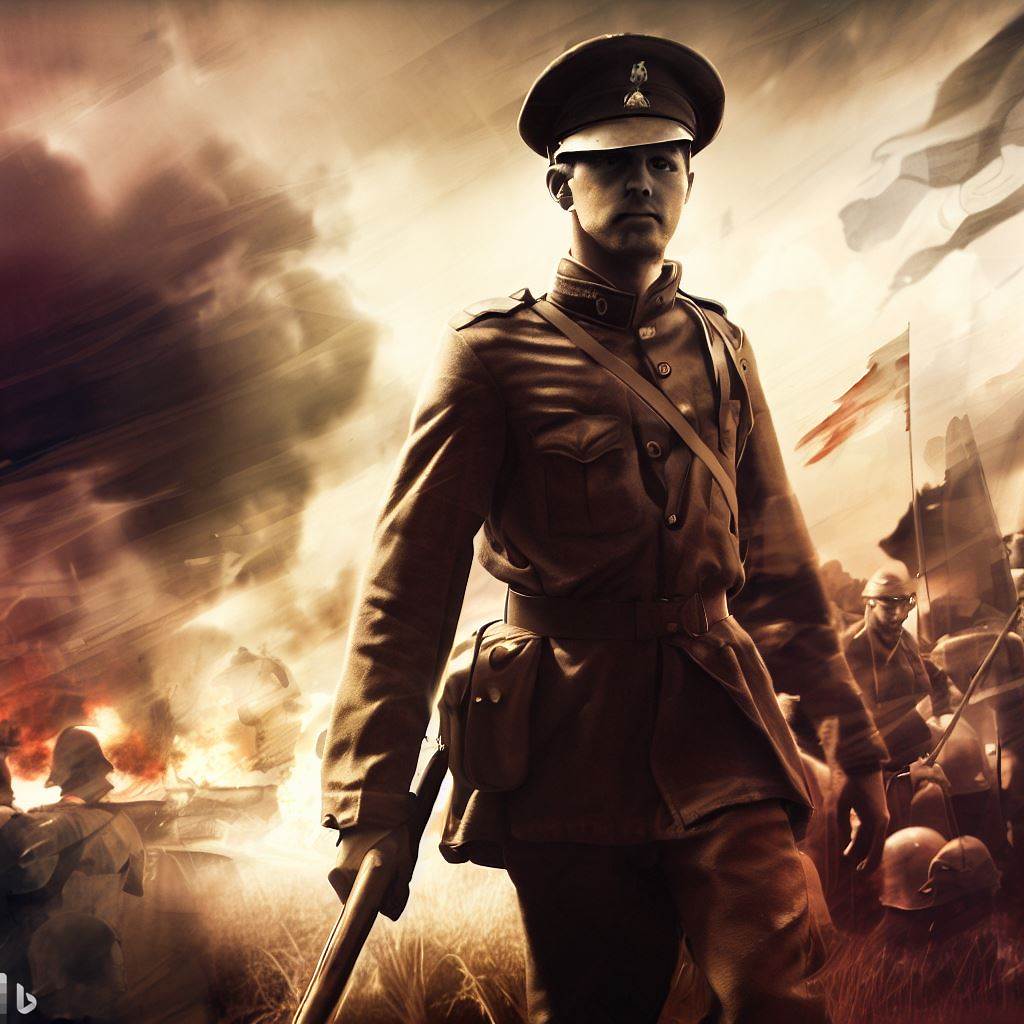
The evolution of warfare has undergone significant changes from classical to modern times with advancements in technology and tactics shaping the way battles are fought.
In classical times warfare was primarily fought with hand-to-hand combat spears and swords. The phalanx formation a tactic used by the Greeks was a significant development in classical warfare. The phalanx allowed soldiers to protect their own bodies with their shields while also providing cover for those around them. This formation was particularly effective against cavalry charges where horses would be brought to a halt.
In contrast modern warfare has seen the rise of firearms artillery and tanks. The use of gunpowder revolutionized warfare allowing for projectiles to be fired over long distances. The invention of the machine gun in the late 19th century further increased the lethality of firearms. Tanks developed during World War I allowed for mobile firepower that could break through enemy lines. The use of air power particularly in the form of bombing has also become a significant strategy in modern warfare.
Overall the evolution of warfare has been shaped by advancements in technology and tactics with each new development leading to new strategies and methods of fighting.
Decisive Battles That Shaped the Course of History
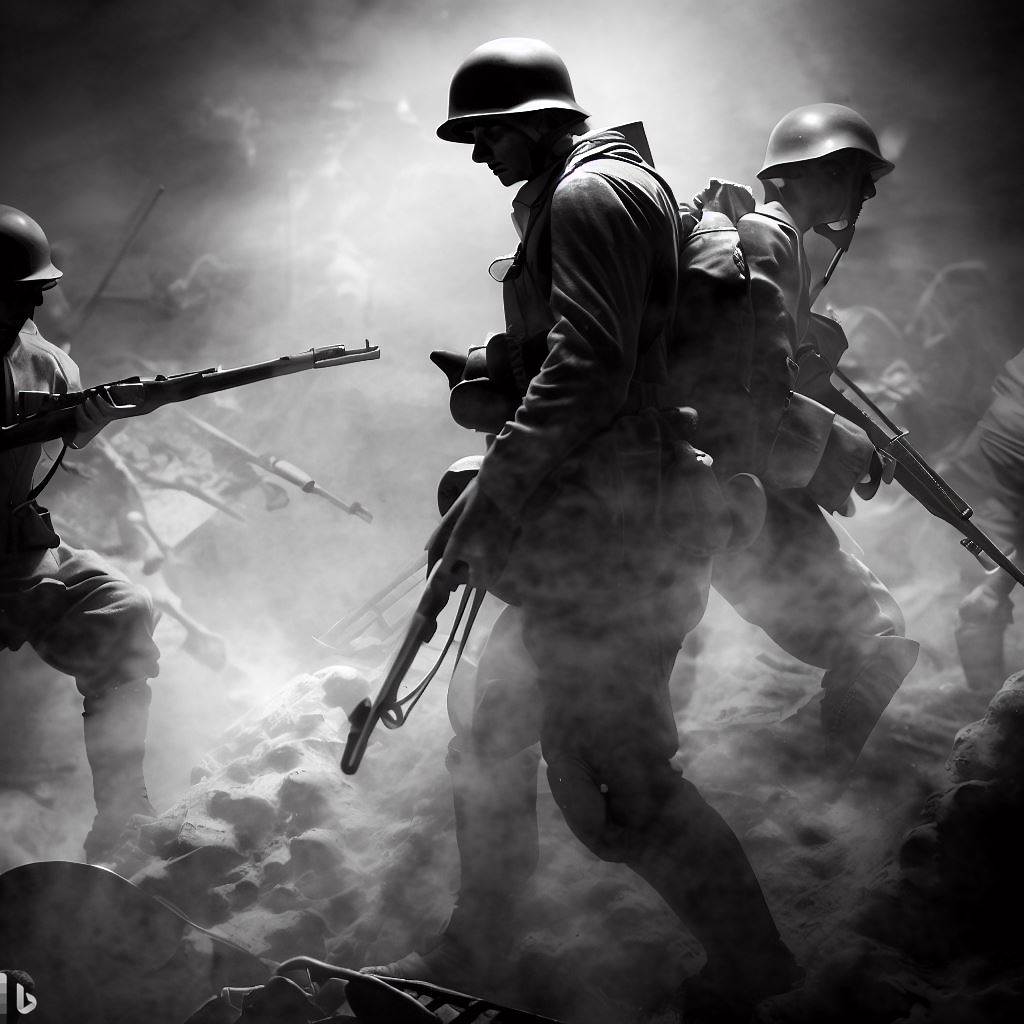
Several battles throughout time have had a significant impact on the course of events shaping the political and social landscape of nations. These battles were not only fought with weapons and armies but also with strategy tactics and leadership.
Some of the most famous and decisive battles in history include the Battle of Marathon (490 BCE) where the Athenians defeated the Persians and secured their independence; the Battle of Hastings (1066) where William the Conqueror defeated King Harold and established Norman rule in England; and the Battle of Waterloo (1815) where the Duke of Wellington and his allies defeated Napoleon Bonaparte and ended his reign as Emperor of France.
These battles were not only significant in terms of their military outcomes but also in terms of their cultural and historical significance. The Battle of Marathon for example is often seen as the beginning of Western civilization as it marked the first time that the Greeks successfully defended themselves against the Persians and established their dominance in the Mediterranean.
The Battle of Hastings on the other hand marked the end of the Anglo-Saxon era in England and the beginning of the Norman era which had a lasting impact on the English language culture and political institutions.
Finally the Battle of Waterloo marked the end of the Napoleonic era in Europe and the beginning of a new era of peace and stability which lasted for more than a century.
Military History of Specific Countries or Regions
Notable nations and regions have left their mark on the world through their military achievements and strategies. One such example is the military history of ancient Greece. The Greeks were renowned for their military tactics and innovation in warfare which were essential in their victories against the Persian Empire.
The phalanx formation where soldiers formed a wall of overlapping shields and spearheads was a staple in Greek warfare. Additionally the Greeks were known for their use of hoplites heavily armored infantrymen who were the backbone of their military. The Greeks also employed various siege tactics such as the use of battering rams and siege towers to conquer their enemies.
Another significant region in military history is the Middle East specifically during the Islamic Golden Age. Islamic armies conquered vast territories including the Arabian Peninsula Persia and parts of India and Central Asia through their use of superior tactics and weapons.
The Islamic Golden Age was also known for its advancements in military technology such as the invention of gunpowder and the development of the first firearms. Additionally Islamic armies were known for their use of light cavalry and horse archers which allowed them to quickly maneuver and outmaneuver their enemies.
Overall the military history of specific nations and regions has played a crucial role in shaping the course of history and has left a lasting impact on the world.
Impact of Military History on Society and Culture
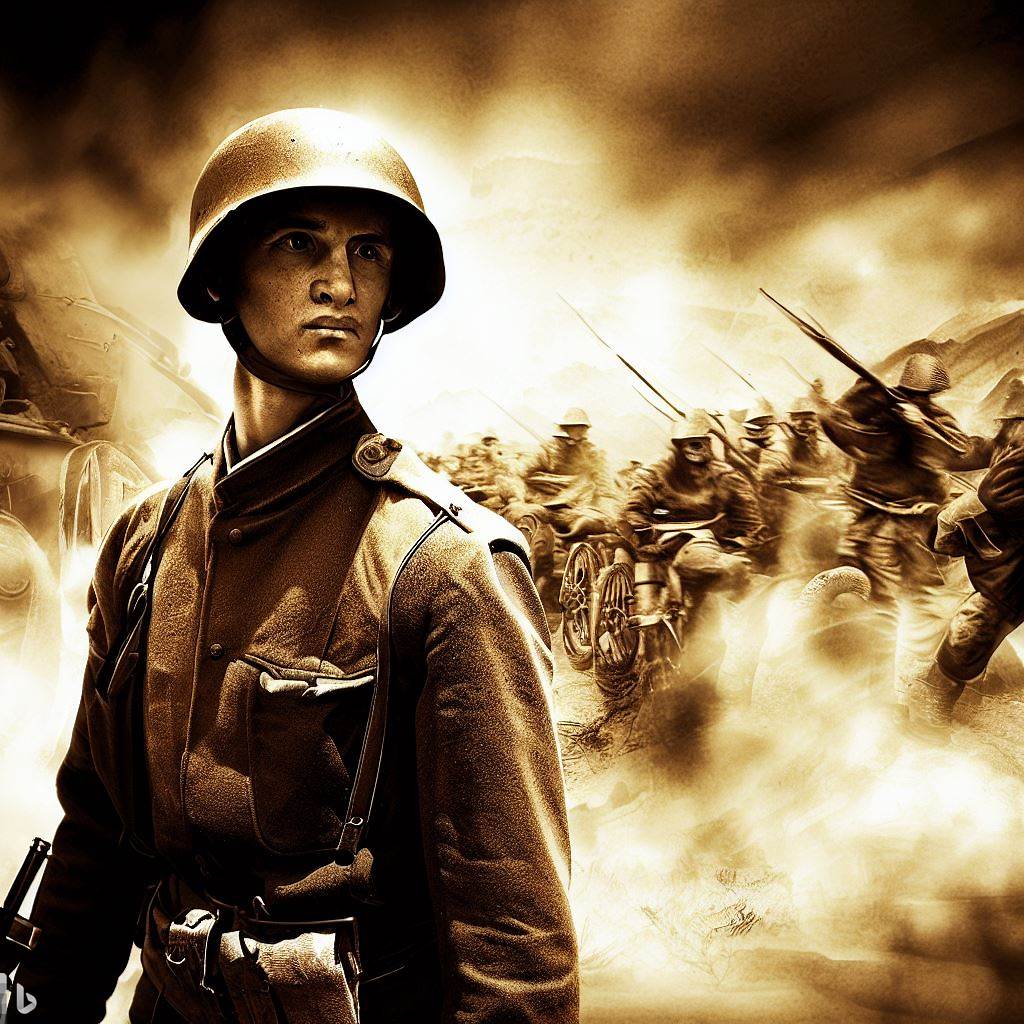
Transition: The military history of specific countries and regions has helped shape the political and social landscapes of those areas. However the impact of military history extends beyond national borders and has had a significant influence on global society and culture.
The study of military history provides a deeper understanding of the complexities of conflict and the strategies employed by military leaders. This understanding can inform contemporary military operations and policy decisions.
Additionally military history has shaped popular culture inspiring a wide range of books movies and video games. These depictions of military conflicts have both positive and negative effects as they can help raise awareness and understanding of past events but can also perpetuate stereotypes and glorify war.
The impact of military history on society can also be seen in the commemoration of military events. Remembrance days and memorials serve as a reminder of the sacrifices made by those who served in the military. These commemorations can also be a point of controversy as they can be perceived as glorifying war or as promoting a nationalist agenda.
Overall the impact of military history on society and culture is complex and multifaceted and it is important to continue studying and analyzing this history to fully understand its influence.